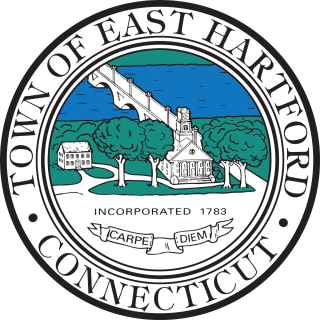My neighbor's tree is a hazard, will the Town take it down?
The Town's Tree Warden will respond to all reports of unsafe or hazardous trees. If the Tree Warden were to find a tree on private property to be rotting, dead or a hazard a letter stating the findings will be sent to the property owner informing them of the findings and with a recommendation that the tree should be removed or evaluated by an arborist. The town does not have the authority to enter onto private property and remove a tree.
In compliance with the CT State Tree Law the following is true throughout the state and is not just specific to the town of East Hartford.
Acts of God – Affected Property Owner Pays: With private homes, as opposed to commercial property, generally the homeowner has no duty to his neighbor for property damage resulting from trees and branches falling from the homeowner’s property, especially when due to a true “Act of God" such as a severe wind, rain and snow. Generally the affected neighbor pays for his own property damage, including tree removal, clean up and related expenses. Situations which are typically covered through ones homeowners insurance.
Knowledge Exception – Tree Owner Pays: An exception to this general rule occurs when the homeowner whose tree the damage originated from knew (or had reason to know) his tree was dangerous to his adjoining neighbor’s property. For example, the tree appeared dead or diseased (so as to be reasonably observable when inspected) and despite such observation the homeowner failed to act to remediate the dangerous tree condition. This is where our tree warden’s findings are applied. However the ruling for this is not for the town to determine/intervene in. This would be considered a civil matter in which you would pursue compensation for damages through your insurances or a court of law.
Can Trimming Be Forced? : No one person is solely “responsible" for trimming overhead hanging branches as BOTH adjoining property owners have a right to trim such trees. Connecticut law permits an adjoining property owner to lop off branches or roots (up to the line of his land) from a tree located on another person’s property. The person on whose property the tree trunk is located accordingly retains the right to cut / trim that tree as well.
Caution Before Cutting Trees: Before taking unilateral action to cut a tree near a property line, it’s advisable to discuss the project first with your neighbor. Either agree the tree is yours to cut or alternatively get their permission to cut their tree (preferably in writing). Neighbor disputes are some of the most highly charged and costly litigation so a little pre-activity understanding can save lots of future disagreement. Per Connecticut law (C.G.S. § 52-560) any willful cutting of another’s tree (even one on public land) subjects the offender to liability.
